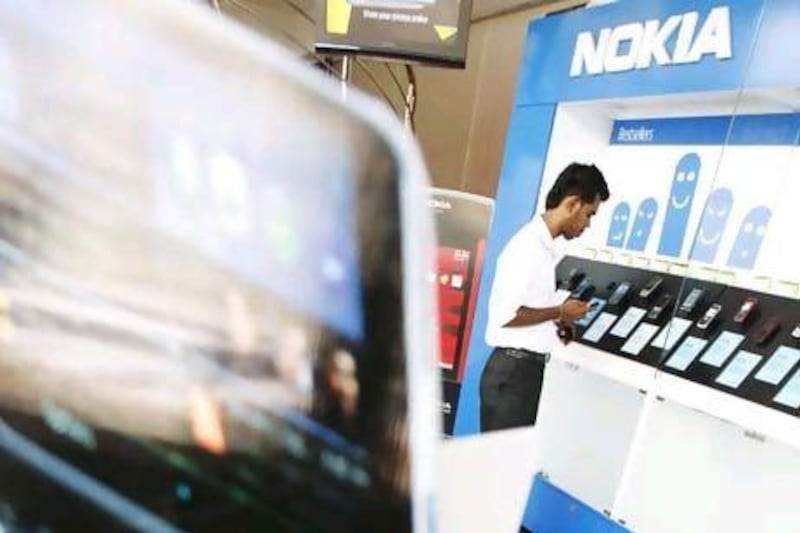Downloading the latest applications has become more appealing now users in the Gulf can bypass credit-card payments and have the cost added to their phone bills instead.
More Business news: Editor's pick of today's headlines
Last Updated: May 25, 2011
Industry Insights // Tablets not bitter pill for laptops Devices such as Apple's iPad are increasingly popular, but across the GCC Samsung has been experiencing enormous growth in sales of its laptop computers this year. Read article
Abu Dhabi's Gasco to offer 1,800 jobs in big expansion Abu Dhabi Gas Industries hopes to hire hundreds of engineers and technicians as part of a major expansion ahead of large projects. Read article
Spanish solar plant built by Masdar is well worth its salt A Spanish solar plant developed in part by Masdar, Abu Dhabi's clean energy company, is to deliver electricity 24 hours a day for more than half the year. Read article
[ More business ]
The global apps business is expected to be worth US$25 billion (Dh91.83bn) within four years, according to a study by MarketsandMarkets, as internet users migrate towards mobile-friendly formats. Until now, consumers in the UAE had to use their credit cards to pay for apps, which was seen as a big obstacle to increasing uptake.
Nokia, the handset manufacturer, has just launched a direct-billing initiative with Etisalat, which allows mobile users in the country to purchase an app from the Finnish company's Ovi Store and be billed directly to their mobile phone account.
"Billing integration is working in the UAE. It's still in final testing mode," said Philippe Kubbinga , Nokia's head of operator accounts in the UAE. "If you are a pre-paid customer, [the cost of an application can] be debited from your credit, and for post-paid customers, the item will appear on your monthly bill."
Nokia also plans to roll out direct billing of apps into other markets where Etisalat operates, such as Egypt, Nigeria, Pakistan, Saudi Arabia. It is also in discussions with du, Etisalat's rival in the UAE, over direct billing for apps.
"We'll start to roll this out in affiliate countries where Etisalat operates," he said. "We're talking to all the operators in the region, du is also part of the discussion."
Experts in the mobile applications industry welcomed the news.
"Nokia's Ovi Store is very popular," said David Ashford, the general manager of AppsArabia. "[Operator billing] will be massive because many smartphone owners in this region do not have credit cards or do not want to use them online."
Gustavo Fuchs, the director of mobility at Microsoft in the Middle East and Africa, said it was also in negotiation with carriers based in the Gulf to allow direct billing of its apps store.
Microsoft yesterday launched its much anticipated Mango operating system upgrade for the Windows Phone. It recently signed an agreement with Nokia for the handset maker to use the Windows Phone operating system.
"One of the pillars of our partnership with Nokia is to use their infrastructure for mobile-operator billing, which gives the ability for users not to use their credit card, but to get the applications directly on their phone bill," said Mr Fuchs.
"We don't have a timeline where we're going to enable this. But we will leverage the Nokia blueprint across the Middle East and Africa," he added. "We have an ongoing relationship with most of the operators in the Gulf."
Research In Motion, the maker of the BlackBerry device, said it had launched direct billing for its app store in other markets.
"Carrier billing adds a new level of convenience and flexibility," said Sandeep Saihgal, the managing director of RIM Middle East.
RIM recently announced "integrated carrier billing" agreements with international telecoms operators Vodafone, T Mobile and Telefonica - but said such an initiative had not yet been launched in the Middle East.
"We don't have anything specific to announce for the Middle East market right now," he said.





